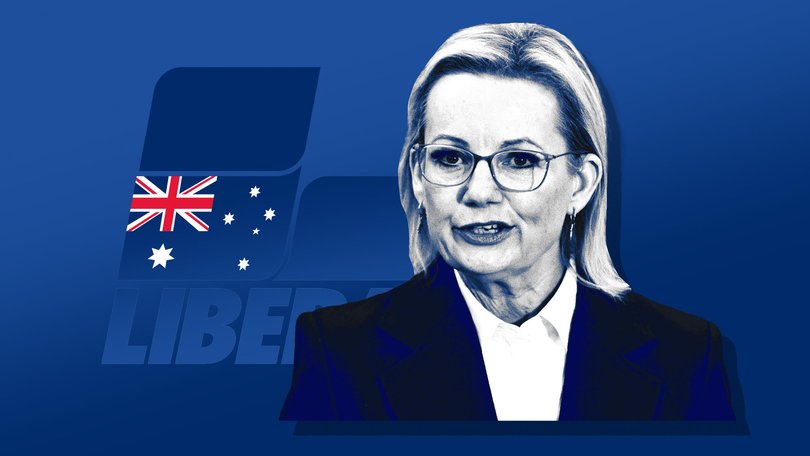AARON PATRICK: Sussan Ley changes the game on climate change and sets up direct contest on energy
AARON PATRICK: After six tumultuous months as leader, Sussan Ley just fundamentally changed Australian politics. Here’s what it means.

The Liberal Party, under leader Sussan Ley, fundamentally changed the national debate about climate change on Thursday by giving Australians a choice between pretending to save the planet and lowering energy prices.
The legal requirement to eliminate greenhouse gas emissions by 2050, on a net basis, would be struck out by her government, Ms Ley promised.
In other words, the Coalition’s net zero commitment is dead. Coal is back. Massive subsidies for wind and solar power would end. Australia — a country that contributes around 1 per cent of global emissions — would no longer participate in the global climate bureaucracy that sets targets even advocates don’t believe are achievable.
Sign up to The Nightly's newsletters.
Get the first look at the digital newspaper, curated daily stories and breaking headlines delivered to your inbox.
By continuing you agree to our Terms and Privacy Policy.The next step will be for Liberal negotiators to settle on a final Coalition policy with the National Party. That should not be difficult given the Liberals today moved far away from the Labor-like climate policies adopted by prime ministers Malcolm Turnbull and Scott Morrison in the last Coalition government.
As for any international opprobrium for opting out of the global climate movement, Ms Ley made it clear she did not care.
“If there are reasons why people in Paris or in some United Nations organisation don’t like it, I can deal with that,” Ms Ley said at the end of a 45-minute press conference.
The shift means the Liberal Party will oppose the Labor Government’s most important project: the introduction of a “green economy” through huge spending on power infrastructure, from a $12 billion hydro-electric system in the Snowy Mountains to $250,000 suburban batteries.
The shift is a defining political victory for conservatives in the Liberal Party that could, paradoxically, preserve the leadership of Ms Ley — who was elected by MPs from the party’s left. Now she has given them what they wanted, how can they fire her?
Unlike the US under Donald Trump, Australia will not withdraw from the Paris Climate Accord, which requires countries to set regular emissions targets designed to eliminate them in the second half of the century.
Ms Ley ridiculed countries that have set unrealistic goals under the Paris system. Instead of setting emissions targets, the Liberals will drive down electricity prices, she said. “We’re going to be honest,” she said.
The Liberal Party is gambling that Australians’ pain over power bills is greater than their desire to help fight global warming. The effects would not just be in retail electricity bills. Removing climate-abatement rules from across the economy would cut business costs too, which could flow across the economy, from the prices of avocados to cars.
Ms Ley has set up the first direct contest over energy subsidies since Tony Abbott won an election in 2013 promising to end the carbon tax.
Ms Ley did not quibble when journalists put to her that the Liberal’s “technology agnostic” policy will likely increase or prolong the use of coal for electricity generation, a primary source of Greenhouse gases.
“State governments are already extending the life of coal-fired power stations because they have to keep the lights on,” she said.
To back up her arguments against renewable energy, she cited two cautionary examples: the Tomago aluminium smelter in NSW, which may close because of high power costs, and the collapse of the solar-dependent electricity grid in Spain and Portugal in April that cost 11 people their lives.
Inner-city Liberal candidates will be despondent at the policy repudiation. “Net zero” has become a powerful catch cry of the “teal” independents financed by climate activist Simon Holmes à Court.
They rightly fear being accused of climate scepticism in the cafes and parks of prosperous suburbs by their opponents. Ms Ley said many families in cities are suffering higher prices too.
Whether the inner cities are feeling enough financial pain to overcome switch to the Coalition will not be known until the next election.
Whether you agree or disagree with the Liberal Party’s move, Ms Ley has set up the first direct contest over energy subsidies since Tony Abbott won an election in 2013 promising to end the carbon tax, which he did.
After six tumultuous months as leader, she has fundamentally changed Australian politics.

